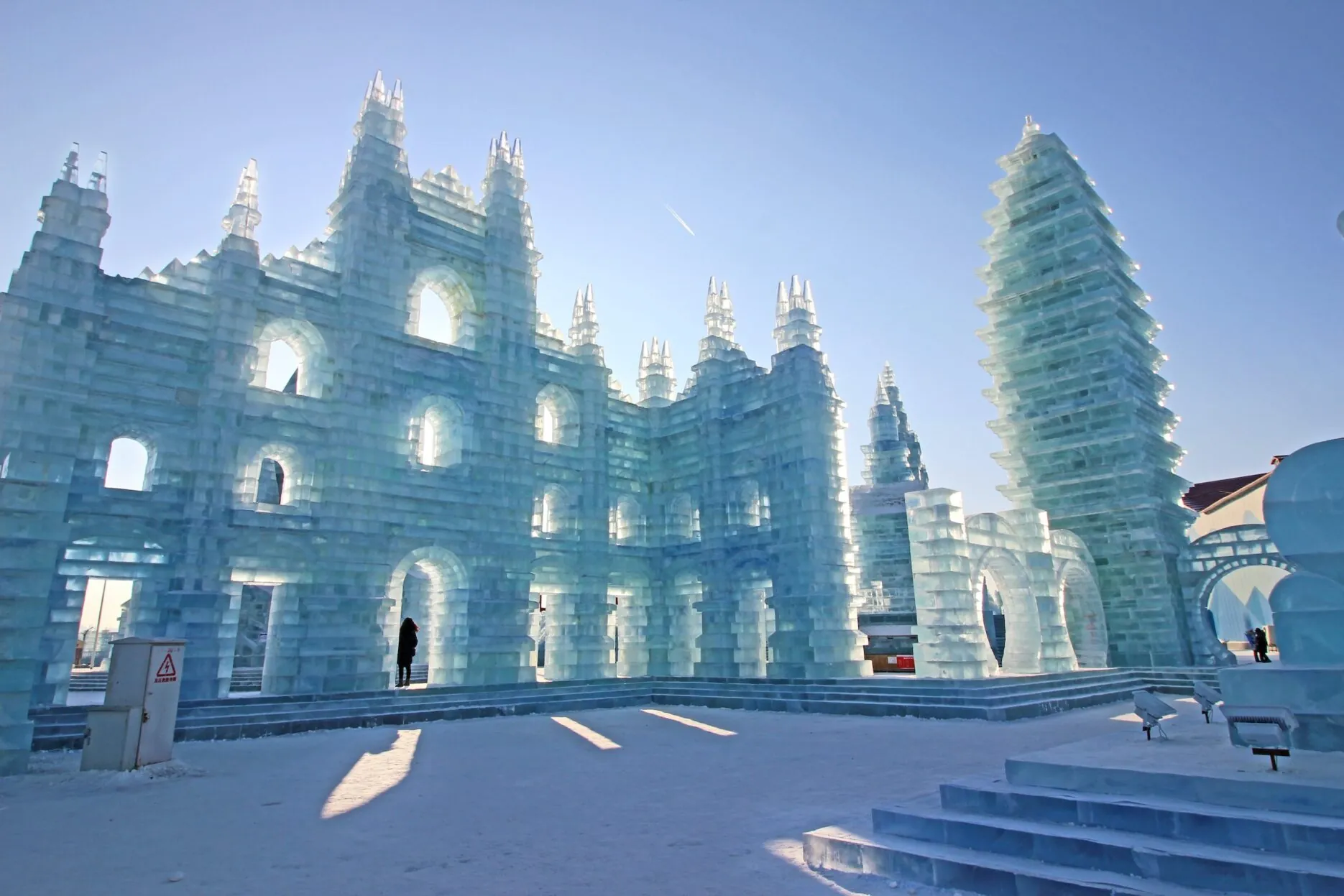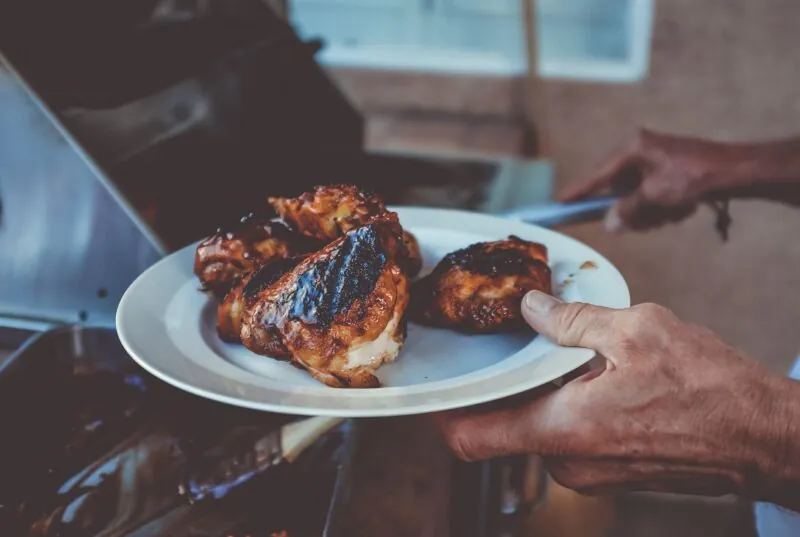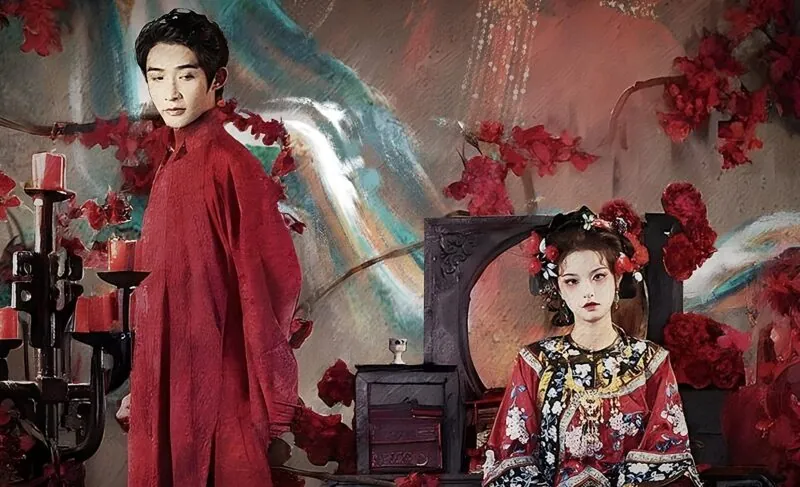This New Year holiday period, one city above all became the most talked about destination for domestic travellers – Harbin. Harbin is the capital of Heilongjiang Province, in Northeast China. It boasts snow and ice sports, Russian-style architecture and Northeastern culture. Moreover, it had an extra day’s holiday this year, as 5 January was the 40th annual Ice Festival, which is a city-wide holiday for Harbinites.
Harbin reported a whopping 5.9 billion RMB (829.19 million USD) in revenue from tourism-related sectors with over 3 million visits during the 3-day New Year holiday period. At the same time, a 158% increase in holiday bookings was reported, mostly from Shanghai, Shenzhen and Beijing. Stocks relating to tourism in the Northeast such as hotels, ski resorts etc. hit limit-up during the craze.
Harbingers of boom
It all started on 18 December last year when the Bingxue Big World (or Ice and Snow World) amusement park was overwhelmed by visitors, and many could not go on the attractions they wanted after queueing for 4 to 5 hours. After the visitors demanded a refund, not only did the local officials come to the park to pacify the crowd, but the ensuing refund, apology and follow-up were well-organised and efficient. This provided a good opening for Harbin’s holiday season.
During the online extravaganza, Harbin gained a new nickname ’arbin (尔滨). The nickname came from a Harbinite complaining online that with all the tourists, locals were overlooked by the service industry. This took away the laughter from them, according to the netizens, hence the “Ha” in “Harbin” was omitted. However, omitting the first character in a name, which is usually the surname, is a form of endearment, like being on “first name terms” in the West. This could be the reason the name ’arbin was so readily accepted by locals and others alike.
The “Potato” invasion
Not only did Harbin get a nickname, but so did its visitors. Tourists from Southern China are now called “Small Potatoes” (小土豆). However, the term “小土豆” more literally refers to the root veg, without the connotation of “a nobody” in English. On Weibo, China’s Twitter equivalent, the topic “What is the Southern Small Potatoes meme” (#南方小土豆是什么梗#) gained 100 million views, ranking number 2 on the Hot Search list.
While Northeasterners reassure that “Small Potato” is affectionate and not meant to be discriminatory, Southerners still call for boundaries
People from Southern China are stereotypically shorter than those from the north. However, the “small potatoes” nickname comes from more than their diminutive stature. The term is considered by some to be offensive, due to its body-shaming connotation and association with the Southern stereotype. While Northeastern people reassure that “Small Potato” is an affectionate nickname and in no way meant to be discriminatory, Southern netizens still call for boundaries when using nicknames.
However, the internet loves nicknames like this, and when 15 RMB (2.11 USD) potato-shaped keychains appeared in Harbin, Weibo fell head over heels and the topic “15 RMB Small Potato keychains appear in Harbin” (#哈尔滨惊现15元1个小土豆挂件#) shot to number 1 on Hot Search list with 460 million views.
Et tu, ’arbin?
A popular topic on Weibo jokingly accuses Harbin of “backstabbing” the Northeast. This, of course, is another mix of stereotypes and mock accusations of the city giving up its Northern identity to serve its visitors.
While the stereotypical Northeasterner is known for their hospitality, they are also straightforward, bold and somewhat unruly, and can sometimes be loose on details and manners. By providing personalised services with attention to detail, even “spoiling” its visitors by flying an artificial moon by drone over the Saint Sophia Cathedral for tourists’ photos on cloudy evenings, replacing old road signs and having Evenks and Oroqen people parading tourist attractions in ethnic attire, ’arbin was perceived by some online to have sold out and lost its Northern soul.
Many of the talking points on Weibo surrounding the “people pleaser” characteristics of Harbin would involve the city “spoiling” the Small Potatoes. The “spoiling” mostly refers to the personalised services provided to visitors. Some Southerners object to the infantilisation of the term while others look to it as another form of endearment.
Many of the talking points surrounding the “people pleaser” characteristics of Harbin involves the city “spoiling” the Small Potatoes
Some of the jabs come from the long-running North vs South stereotypes such as sweet or savoury doufunao (or douhua, a type of tofu pudding). To please the stereotypically fussy and sophisticated Southerners, Harbin provided plating presentations of frozen pears (normally eaten whole) and spoons for baked sweet potatoes (usually eaten with hands).
Zibo 2.0 and city marketing
The Northeast chic has been steadily gaining popularity in recent years, due to the “Northeast Renaissance” in literature and other cultural and art forms. The Northeastern floral pattern has been particularly trendy as brands such as tea chain Mixue Bingcheng, bakery Butterful and Creamorous and burger start-up Tastien all incorporate the pattern in their packaging. Tastien’s Northeast chic campaign also included collaboration with rock band Second Hand Rose. The band is known for using Northeast elements in both their music and visuals. They have featured in a variety of campaigns since they won the champion title at the music reality show The Big Band.
City marketing has been widely adopted since last year. Zibo, an industrial city in Shandong province went viral early last year for its unique barbecue dishes and hospitality. Similarly, the local authorities and people all helped to make the town more convenient for tourists by providing shuttle buses and better service.
Some experts believe that as a provincial capital with natural resources such as snow and ice, Harbin is in a far better position than Zibo
Some experts believe that as a provincial capital with natural resources such as snow and ice, Harbin is in a far better position than Zibo. With the buzz it currently has, it would be easier for Harbin to leave a mark and become a popular destination. How it can maintain the momentum, however, especially after the winter would be a challenge for the city.









